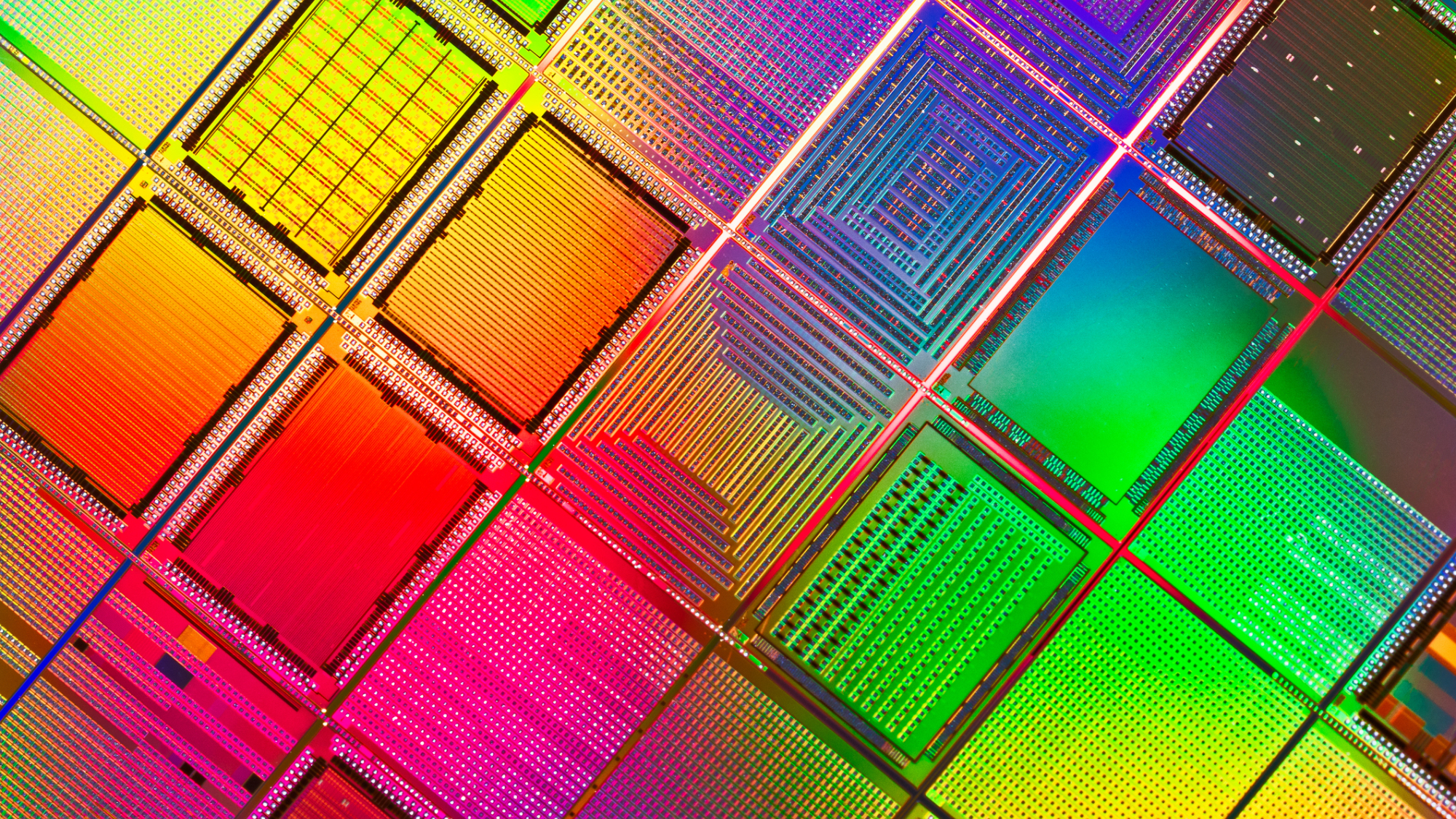'Instead of crippling China's semiconductor ambitions, U.S. sanctions may be inadvertently accelerating them': Report claims Washington measures could be bolstering China's chip market
China's chip industry could emerge more resilient from U.S. sanctions

A new report claims that U.S. sanctions and restrictions placed on the semiconductor market to stifle China's growth may actually be fueling a rise in China's own semiconductor industry, building a more resilient ecosystem, and inadvertently accelerating China's ambitions in the market.
As reported by Digitimes, although the U.S. and China have agreed on a 90-day trade agreement to suspend the harshest tariffs between the two nations, "tensions in the semiconductor sector are escalating."
Digitimes says the rising temperature has put Taiwan's IC substrate manufacturers operating in China under renewed scrutiny, revealing some doubt about the efficacy of U.S. Sanctions.
As noted by the report, Taiwan's substrate supply chain delivered unexpectedly strong results in Q1 2025. According to Digitimes, a "stark difference" in positioning of companies in Taiwan versus China reveals the possibility that "China's semiconductor ecosystem may be accelerating its rise, even under U.S. restrictions."
As the report notes, President Trump has jettisoned the Biden administration's tiered chip diffusion rules in favor of a blanket ban on the global use of Huawei's Ascend AI chips and measures to prevent the export of other AI chips to China, a move Nvidia CEO Jensen Huang branded "a failure."
The report highlights the contrasting fortunes of Unimicron and Zhen Ding Technology. The former has reported depressed high-end capacity utilization at its China plants as a result of tightened chip restrictions. The world's foremost IC substrate maker has seen a rebound in orders at its Taiwan facilities to offset the slump, but executives remain concerned that escalating sanctions could see a permanent reduction in high-margin business from China's premium electronics sector.
Conversely, Zhen Ding – the case study behind the theory that sanctions are buoying China's chip industry – is reportedly seeing strong momentum in China's domestic markets. It reportedly credits its "China for China" strategy (prioritizing local production for local demand) as a key factor behind a 30% YoY revenue increase in its substrate division.
Get Tom's Hardware's best news and in-depth reviews, straight to your inbox.
According to Digitimes, continued increase in China demand could even see Zhen Ding leverage its Taiwan Kaohsiung AI park to meet demand needs, reversing the flow of the supply chain.
The upshot, according to industry observers cited in the report, is that this strong performance points to a "critical paradox," namely, Digitimes says that "instead of crippling China's semiconductor ambitions, U.S. sanctions may be inadvertently accelerating them," with domestic demand and supply chain localization creating a resilient ecosystem that "that could emerge stronger in the face of adversity."
The sentiment broadly reflects Nvidia CEO Jensen Huang's comments on the ban on AI chip exports recently. As mentioned, he branded the measures a failure, and specifically noted that companies are turning to Nvidia's Chinese rivals to make up for the dearth in U.S.-developed chips like its H20, giving its competitors a leg up rather than stifling the industry.
Recently, a report claimed that Nvidia is planning to launch new Blackwell-based solutions for China towards the end of the year to supersede its banned H20.
Follow Tom's Hardware on Google News to get our up-to-date news, analysis, and reviews in your feeds. Make sure to click the Follow button.

Stephen is Tom's Hardware's News Editor with almost a decade of industry experience covering technology, having worked at TechRadar, iMore, and even Apple over the years. He has covered the world of consumer tech from nearly every angle, including supply chain rumors, patents, and litigation, and more. When he's not at work, he loves reading about history and playing video games.
-
phead128 I think if they add one more sanction, it will really really stop their development once and for allReply -
King_V Reply
Better make it two more, which will be doubly effective. I mean, if one more will stop them once and for all, two more will stop them twice and for all.phead128 said:I think if they add one more sanction, it will really really stop their development once and for all -
A Stoner To be fair, everything bolsters it. There is no activity short of nuking them into the stone ages that will not benefit their semiconductor ambitions.Reply
My guess? China is decades away from parity with the west on this. Denying them access to our technology forces them to work harder and longer to get to parity. At the end of the day, the world will be better off if we force China to innovate on its own rather than allowing them to steal our intellectual property, as it will force new ideas and technology to develop. -
hotaru251 people shouldnt be shocked...Reply
there is effectively no real way to stop advancement of another nation outside of manually checking every thing that enters the country (actually impossible from multiple ways).
If a nation is struggling to get access to stuff they will STILL get access to stuff but then use it to advance their own stuff to no longer need others stuff.
This isn't 1st time hard times push for advancement and end up better after than before.
wont be last either.
As an average joe citizen of the world I embrace more options as they may end up being beneficial and/or interesting to future me. -
alizardx Based on reports I've seen, including experimental laser EUV, high end parity 5y? They're throwing LOTS of money at the.problemsReply
But sanctions aren't slowing down CN AI research, homegrown systems delivering comparable performance but.use a lot more power -.which CN has.
But high end isn't everything, most chips required to build servers use tech CN already has.
5y? We're smuggling ai chips out of cn' -
phead128 Yes, there is credible reports of an EUV lithography machine in the next year or two which will allow China to penetrate 3nm and below. It will be game over if they are able to achieve EUV lithography.Reply -
Notton Ultimately, it would be a good thing if more players enter the semiconductor market.Reply
If you thought Nvidia's 90% gaming GPU market share was annoying, wait until you hear ASML's 100% market share for EUV, and the insane wait list it has. The number one bottleneck for getting fabs up and running is literally ASML's monopoly. -
nogaard777 They've already been desperately trying to make their own chips since long before the restrictions. Restricting them from outright buying them didn't accelerate <ModEdit> anything. It only slowed their AI progress slightly.Reply